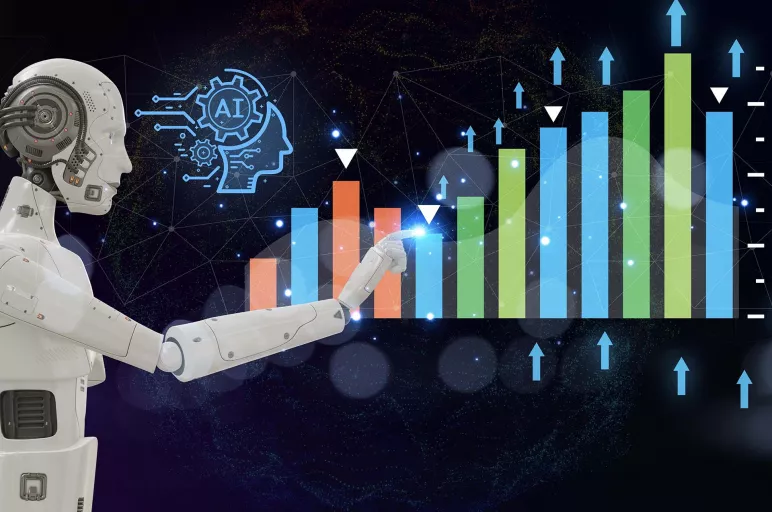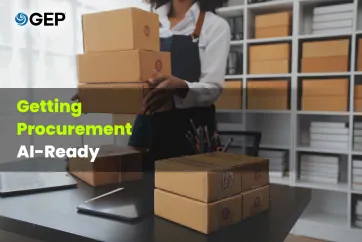
Bringing AI Into These Procurement Tasks Offers the Highest ROI
- AI is transforming procurement, helping teams optimize source-to-pay processes and uncover new opportunities.
- In the current high-inflation, cost-plus world, enterprises are looking to get the most ROI from their investments in AI-powered procurement.
- Automating invoice processing, optimizing spend with AI and augmenting capabilities through AI chatbots are all low-hanging fruit for companies looking to drive quick value from AI.
November 30, 2023 | Procurement Software 3 minutes read
Artificial intelligence is transforming procurement by automating manual tasks, generating strategic insights from procurement data and acting as a digital assistant to procurement professionals.
With the rise of so many new AI solutions like generative AI , it’s worth examining where companies should focus investment for maximum payoff.
Based on emerging use cases and results, three high-ROI AI applications stand out in procurement.
Automating Repeatable Tasks
A tremendous amount of your procurement team’s time gets eaten up performing repetitive administrative tasks like purchase order creation, invoice processing, status tracking and report generation.
AI is increasingly able to handle these mundane activities through process automation bots. Natural language processing extracts key details from documents while machine learning algorithms match invoices to POs and flag any mismatches.
Removing these rote tasks from staff workloads boosts productivity significantly.
It also enables employees to focus on higher value-add initiatives like strategic sourcing, supplier engagement and category management.
With the thousands of invoices that enterprises process on a monthly basis, eliminating manual invoice processing costs through automation can result in significant savings. And enhanced efficiency pays dividends across the source-to-pay process – from paperwork-heavy procurement cycles to auditing and reporting.
As AI delivers a compelling ROI by freeing up employee capacity and driving cost reduction, it warrants serious investment as a starting point for firms looking to implement AI solutions.
Unlocking Deeper Data Insights
The proliferation of enterprise applications and explosion in available market and supply chain data makes it impossible for any human team to synthesize insights as quickly as advanced AI analytics can by leveraging machine learning algorithms to digest billions of data points, detect patterns, model scenarios and prescribe actions.
AI-first procurement platforms can extract key details from contracts or identify savings opportunities by looking at a wider scope of data than a human with a spreadsheet. This heightened intelligence enhances myriad procurement decisions.
Sourcing teams can run market basket analysis to understand which suppliers frequently bid together and then optimize the bidding mix.
Predictive algorithms help determine the optimal number of suppliers to include in RFx events based on category dynamics.
Contract auto-scoring compares new deals against market benchmarks. And early warning systems tap external data from news, social platforms, credit agencies and transport monitors to predict disruption risks in the supply base.
By augmenting teams with an analytics assistant that works around the clock, enterprises gain significant efficiency through tackling data overload.
Accelerating insights also reduces costs of delays in addressing issues like maverick spend or supply risk. The ROI comes from continuously optimized decisions.
24/7 Support From AI Assistants
While analytics provide recommendations based on historical data patterns, AI can go a step further to act as a digital collaborator supporting procurement teams in ways like prioritizing suppliers for engagement, determining should-cost models for negotiations, flagging force majeure risks in contracts and providing market intelligence for emerging spend categories.
Natural language AI allows procurement staff to query these tools with simple questions and gain trusted guidance tailored to the context, just as they would with a skilled colleague. But unlike humans limited by bandwidth, AI assistants offer unlimited capacity. By pairing this computational knowledge and digital support with procurement's institutional wisdom and strategic oversight, such augmented intelligence fuels superior outcomes.
By implementing AI as an advisor to procurement teams, enterprises can enable their talent to accomplish more each day with the help of machine intelligence.
In industries as competitive as retail and manufacturing, gaining this problem-solving edge provides differential business value relative to rivals still relying solely on traditional manual approaches.
While AI holds tremendous potential across procurement, focusing investment on automating repetitive work, empowering data-driven decisions and augmenting staff expertise through digital assistants delivers outsized ROI by:
- Improving efficiency and reducing costs
- Uncovering insights faster
- Enhancing determination of optimal actions
Getting these AI foundations secured will establish a strong foundation – and positive return – for companies exploring the true transformational possibilities of artificial intelligence across source-to-pay.



